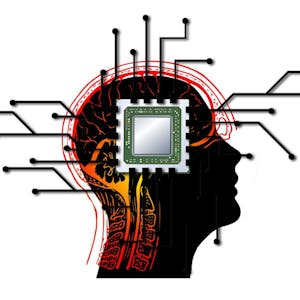This specialization delves into the intricate relationship between human cognition and artificial intelligence, offering a comprehensive exploration of the evolving techniques and ideas in the field. Through a multidisciplinary approach encompassing cognitive psychology, machine learning, neuroscience, and game theory, learners will gain insight into the transformative impact of artificial intelligence on our understanding of human thinking.
Throughout the course, participants will:
Guided by the University of Colorado Boulder, this specialized program offers a thought-provoking journey that surveys historical shifts and contemporary debates in the realm of cognitive science and artificial intelligence.
Certificate Available ✔
Get Started / More Info
This course comprises four modules that investigate the intricate relationship between human cognition and artificial intelligence, addressing topics such as the Turing test, problem-solving techniques, computational vision, and evolutionary perspectives of the mind.
The first module delves into the fundamental question of defining “the mind” and understanding artificial intelligence. It examines pivotal concepts such as the Turing test and Searle’s Chinese Room thought experiment, illuminating their limitations and potential impact. Additionally, learners will explore attempts to create artificial systems that can pass the Turing Test in various domains, along with an analysis of exponential and factorial growth functions.
Module two focuses on problem-solving methodologies, distinguishing between human and computational problems and elucidating various problem-solving techniques. It delves into the effects of bias in judgment and decision-making, while also emphasizing the application of heuristic models and probability modeling in decision-making scenarios.
Computational Vision, the third module, explores models of human and machine vision, addressing their limitations and applications. It also covers the geon model of object recognition, the perspectives of mental imagery, and the neural network models of artificial intelligence, including single-layer and multi-layer perceptron models.
The final module delves into interpersonal, developmental, and evolutionary perspectives of the mind, modeling the effects of multiple decision-maker systems and analyzing scenarios such as the Prisoner’s Dilemma from a game theory perspective. It also explores the relationships in genetic evolution models and developmental models of judgment and decision-making, culminating in the design of autonomous agents as artificial life.
Artificial Intelligence: an Overview is a comprehensive Specialization for beginners, covering technical groundings in AI, ethical and legal issues, and the future...
Cloud Computing Concepts, Part 1 provides a deep dive into fundamental distributed computing techniques, algorithms, and design philosophies essential for cloud...
Inteligencia artificial: proyecto final
VLSI CAD Part I: Logic provides a comprehensive understanding of CAD tools used in ASIC and SoC design, focusing on Boolean logic representations, computational...